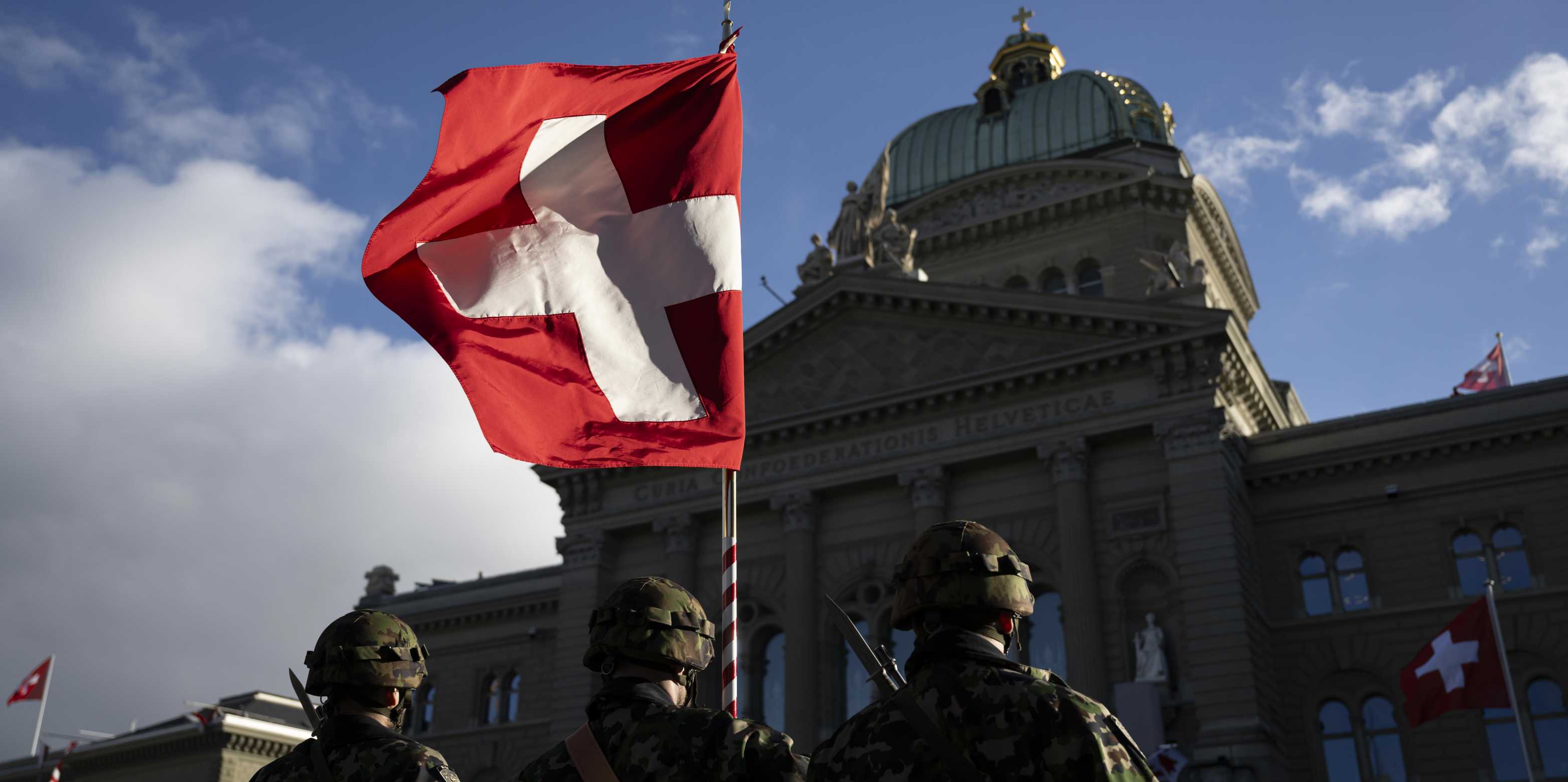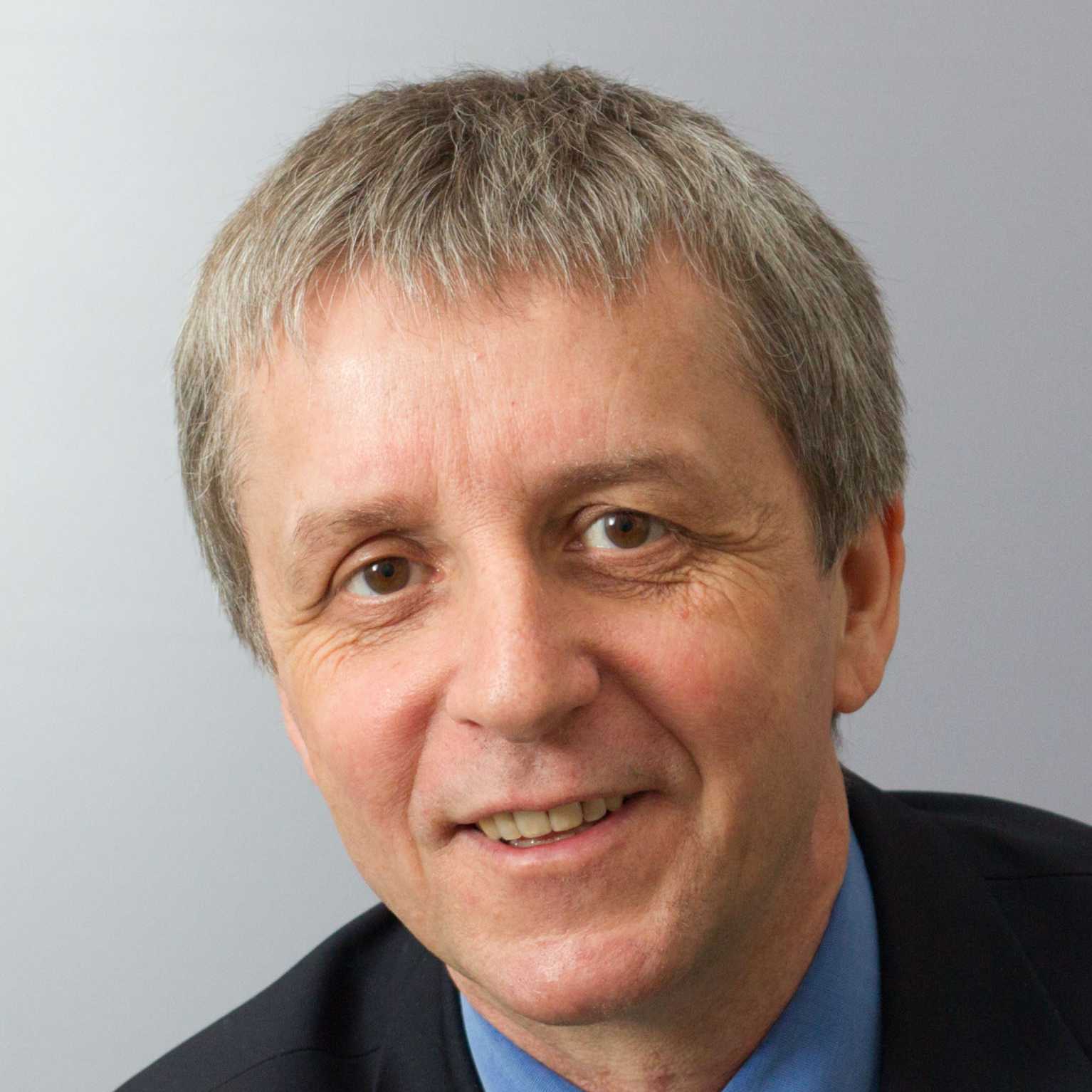“The days of à la carte cooperation are over”
Oliver Thränert was head of the think tank of the Center for Security Studies (CSS) at ETH Zurich for almost twelve years. On the occasion of his retirement, we spoke to him about the future challenges of Swiss security and defence policy.

You’ve been deeply involved with Swiss security policy for many years. What are the biggest differences to other countries?
Oliver Thränert: The Swiss Federal Council is a collegial body. There is no single head of government. This has the advantage that once decisions have been taken, they have broader legitimacy and are also more sustainable, as they can’t be abruptly changed again by a change of government. In other Western democracies such as Germany, meanwhile, there’s a greater need for the government under the leadership of the Federal Chancellor to agree on a position. In Switzerland, there are greater incentives not to resolve conflicts between federal councillors and their departments and to postpone decisions.
Does the Swiss system tend towards inertia?
Yes. This tendency is reinforced by the fact that Switzerland, as a neutral country, doesn’t participate in decision-making in the EU or NATO. It doesn’t have to argue the case for its own positions in these organisations. If the Federal Council doesn’t agree on a security policy issue, decisions tend to be avoided.

Can you give us an example of this?
Take the Treaty on the Prohibition of Nuclear Weapons, which aims to ban nuclear weapons worldwide. All NATO states and other Western countries, and even Japan – the only country ever to have suffered a nuclear attack – have decided to stay out of the treaty because compliance can’t be monitored and because they see nuclear deterrence as an essential part of their security. Switzerland’s security also relies to a certain extent on NATO’s nuclear deterrent, and that would be a reason for Switzerland not to sign the treaty either.
I can tell you’re about to say “but”.
With reference to Switzerland’s long humanitarian tradition – after all, the International Committee of the Red Cross is based in Geneva – it’s often argued that Switzerland must sign the Treaty on the Prohibition of Nuclear Weapons. That means there’s a conflict of objectives between Swiss people’s security and their humanitarian commitment. This conflict has been unresolved for years.
Switzerland has been a non-permanent member of the United Nations Security Council since June 2022. That’s an arena where quick decisions are of the essence again and again.
Yes, Switzerland always has to adopt a position at short notice. That calls for flexible cooperation between the Federal Department of Defence, Civil Protection and Sport (DDPS), the Federal Department of Foreign Affairs (FDFA) and other departments. In this respect, membership of the Security Council is a good training camp for the Swiss administration. I’m pleasantly surprised at how well things have worked out so far.
“Every European country – including Switzerland – must ask itself what part it wants to play in strengthening European security. This is an unusual question for Switzerland.”Oliver Thränert
Now let’s turn to the current security situation: the war in Ukraine has been going on for almost two years now and there is no peace in sight. What does that mean for Swiss security policy?
In the future, European security must be organised against, not with, Russia. And every European country – including Switzerland – must ask itself what part it wants to play in strengthening that security. This is an unusual question for Switzerland.
Why’s that?
Take NATO: Federal Councillor Amherd, the head of the DDPS, wants to work more closely with the defence alliance. But in the future, NATO will take a much closer look at which states are really helping it to guarantee international security. Partners who only want to participate where it benefits them will be less in demand. The days of à la carte cooperation are over. NATO will also be keeping a close eye on Switzerland’s position on the Treaty on the Prohibition of Nuclear Weapons. If it signs up to the agreement, closer cooperation will be difficult.
What would Switzerland gain from closer cooperation with NATO?
The Federal Council has decided in favour of purchasing the American F-35 fighter aircraft. To fully utilise the capabilities of this aircraft, the Swiss Air Force is dependent on close cooperation with its transatlantic partners. And almost without exception, these partners are also members of NATO. That cooperation primarily takes the form of participating in exercises and exchanging data. The situation is similar for ground-based air defence.
You’ll have to explain that.
Purely national missile defence simply makes no sense. In the future, Switzerland will rely on the US Patriot system. Without sensors in partner countries that can detect the launch of a cruise missile at an early stage, these defensive missiles wouldn’t work at all. For example, intercepting a missile fired from the Mediterranean and heading for Switzerland would require well rehearsed cooperation with NATO member Italy.
Are the Swiss Armed Forces prepared for closer cooperation with NATO?
Individual forces – such as the air force and the special forces – certainly are. I see greater challenges for the ground forces due to the militia system. It’s difficult to send militia members abroad for longer periods of time for exercises. If certain sections of the military have a more international focus than others, there’s also a risk of a cultural rift opening up within the armed forces.
Following Russia’s invasion of Ukraine, the Swiss government came under pressure. Its decision not to deliver arms to Ukraine was met with particular incomprehension by many European partners.
Under international law, Switzerland is bound by the Hague Conventions of 1907, which lay out the rights and duties of neutral powers and make no distinction between defenders and aggressors. Accordingly, a neutral state may not support warring parties in different ways, regardless of who the aggressor is. Many capitals around the world have failed to understand this position.
“NATO will be keeping a close eye on Switzerland’s position on the Treaty on the Prohibition of Nuclear Weapons. If it signs up to the agreement, closer cooperation will be difficult.”Oliver Thränert
Why’s that?
Because for most states, the definitive treaty is the UN Charter, which was adopted in 1945. This enshrines the principle of individual or collective self-defence. States that are victims of military aggression may therefore be supported by military means in their defence. In comparison, the Hague Convention on land warfare is less well known.
Should Switzerland have communicated its understanding of neutrality better?
Yes, this is one of the biggest shortcomings of Swiss foreign and security policy. Switzerland ought to do more to communicate its positions.
You have 38 years of experience in political consulting. What should young researchers bear in mind when advising political decision-makers?
Only those who understand the needs, problems and interests of political decision-makers can play an effective role. They should talk as much as possible with those they want to advise, and they should do so as clearly and comprehensibly as possible. Furthermore, they shouldn’t take the view that politicians have to implement what the research says.
So it’s not a case of “follow the science”?
Politics needs scientific insights, but it is not the continuation of science by other means. It follows other mechanisms such as democratic majority decision-making, the legitimisation of decision-making processes and international cooperation.
